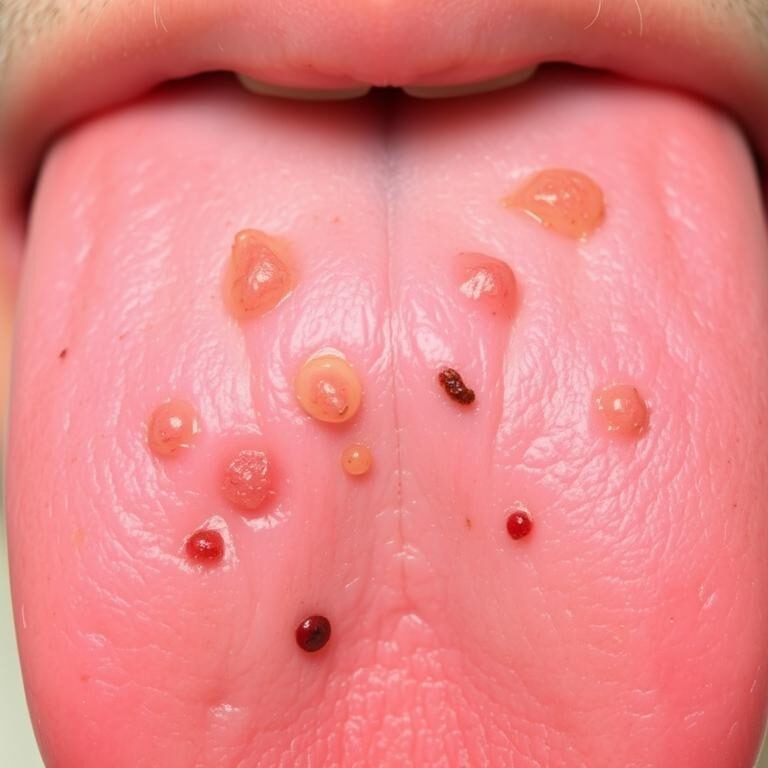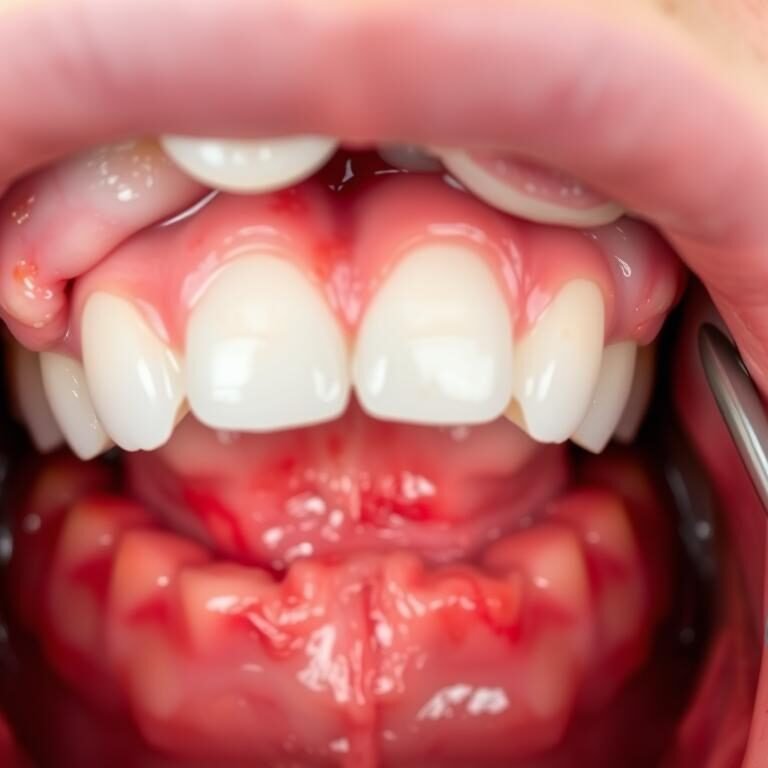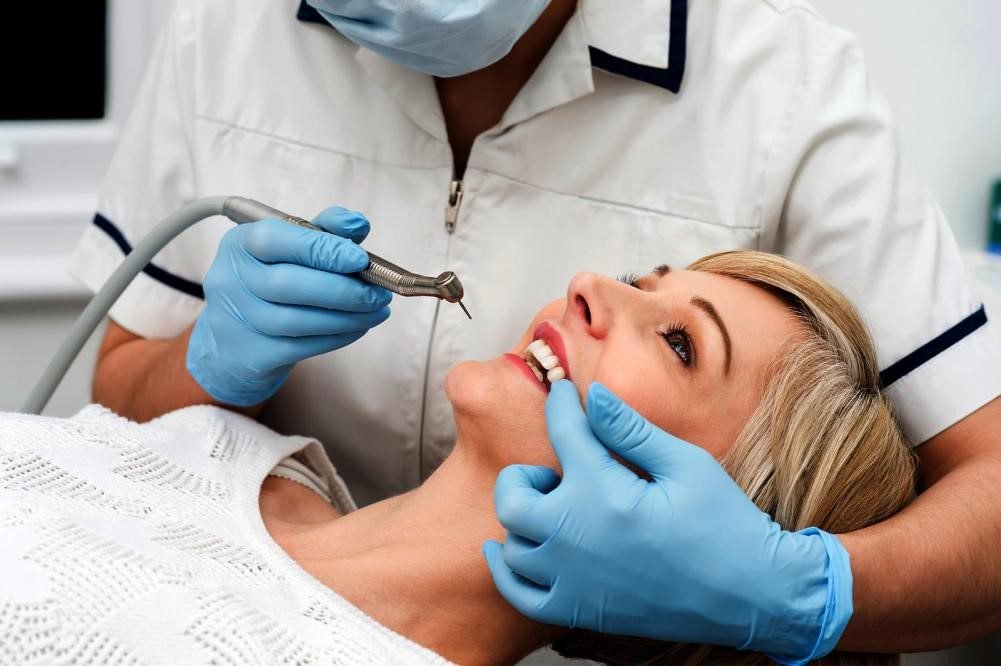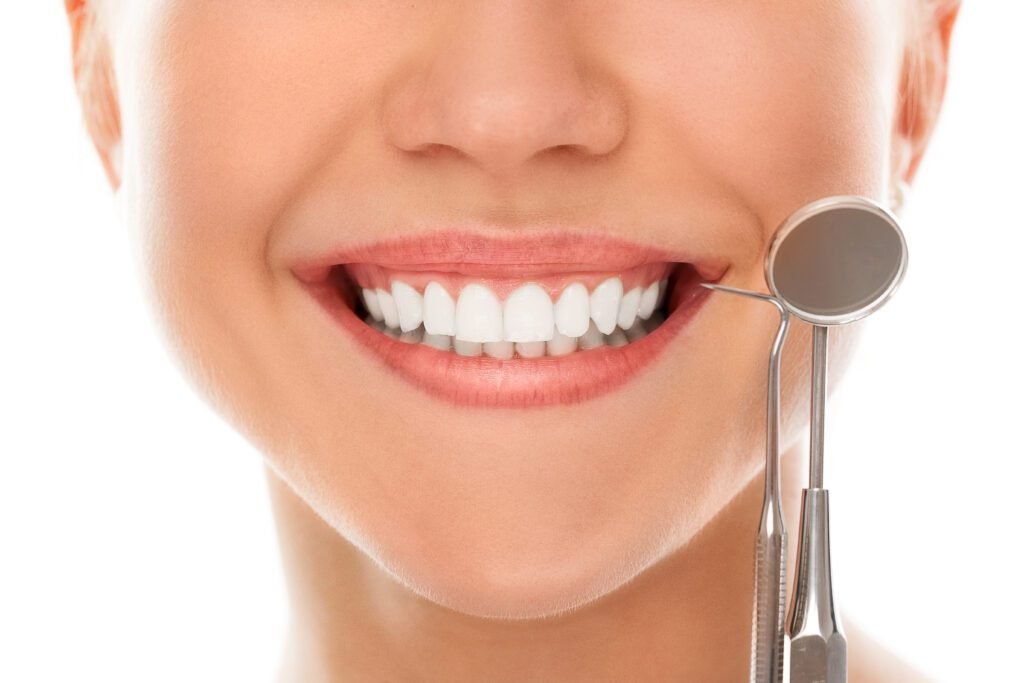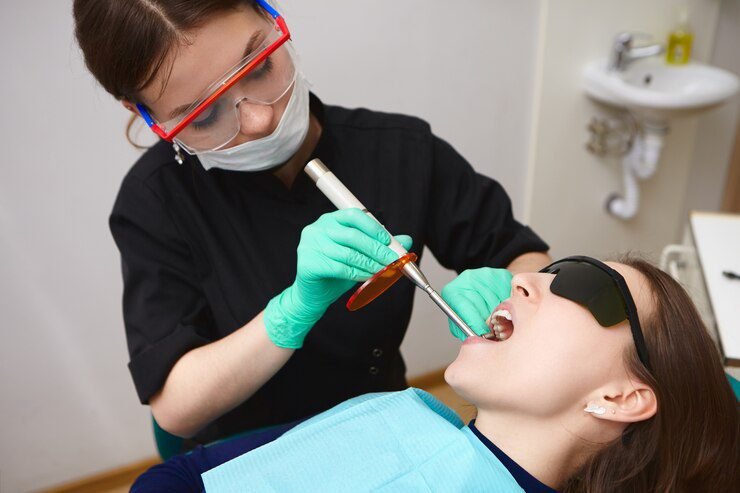Did you know that only about 30% of people floss daily, despite its crucial role in maintaining oral health? Choosing the right type of floss can make a significant difference in your dental hygiene routine.
Whether you struggle with tightly spaced teeth, braces, or simply finding the right technique, the type of floss you use can impact your effectiveness and comfort.
In this article, we’ll compare various flossing options, including traditional string floss, dental tape, floss picks, and water flossers, to help you find the best fit for your needs.
We’ll dive into the pros and cons of each type, ensuring you make an informed decision for a healthier smile. Ready to upgrade your flossing game and enhance your oral care routine? Let’s get started on finding the perfect floss for you!
Table of Contents
The Importance of Choosing the Right Floss
Choosing the right floss may seem like a small decision, but it plays a crucial role in maintaining your oral health. The right floss can effectively remove plaque and food particles from between your teeth and along the gum line, helping to prevent tooth decay and gum disease. On the other hand, using the wrong type of floss or using it improperly can lead to ineffective cleaning and potential damage to your teeth and gums.
With so many options available, it can be overwhelming to choose the right floss for your needs. That’s why it’s important to understand the different types of floss and their pros and cons. By considering factors such as your oral health condition, personal preference, and any specific dental concerns, you can make an informed decision and maximize the benefits of flossing. So let’s delve into the various types of dental floss and explore their advantages and disadvantages.
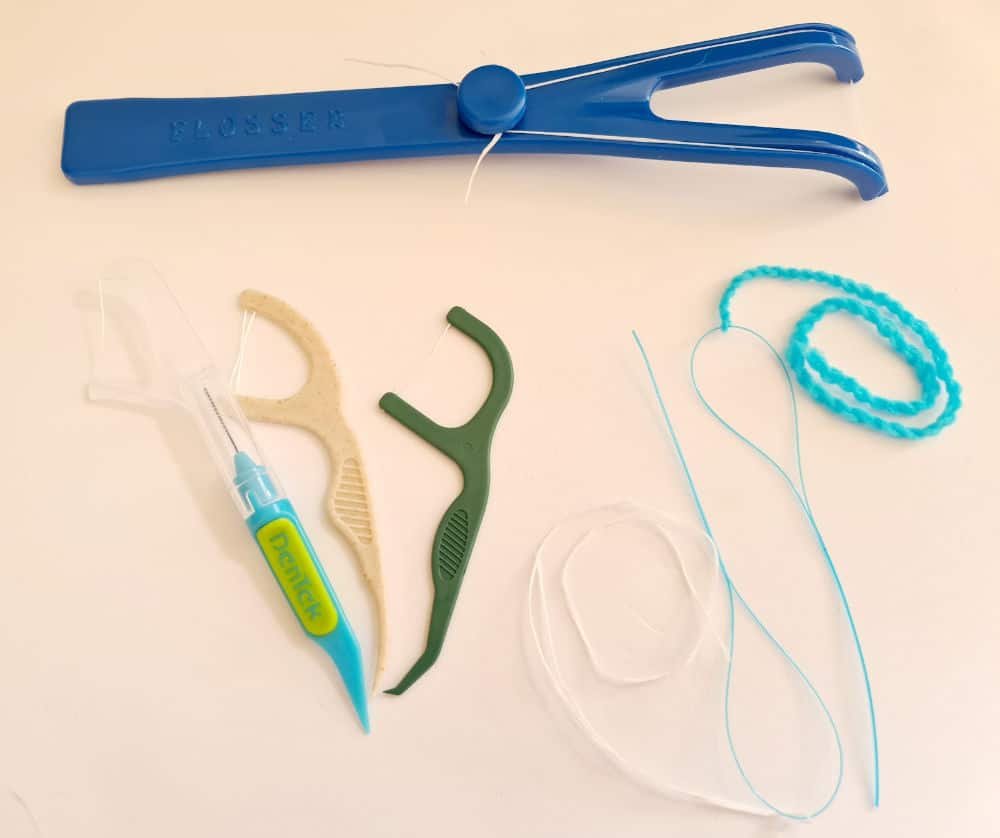
Understanding the Different Types of Dental Floss
When it comes to maintaining good oral health, choosing the right dental floss is crucial. With a wide range of options available, understanding the different types of dental floss can help you make an informed decision based on your individual needs. From traditional nylon floss to water flossers and interdental brushes, each type of floss offers its own advantages and considerations.
1.Traditional nylon floss is the most commonly used type of floss and is widely available in various thicknesses and flavors. It is affordable, easy to use, and effective at removing plaque and food particles from between the teeth. However, some individuals may find it difficult to handle or maneuver around dental work, such as braces or bridges.
2.Monofilament floss, on the other hand, is made from a single strand of material, such as rubber or Teflon. This type of floss is resistant to shredding, making it a suitable option for those with tight teeth or dental work. However, it may be more expensive than traditional nylon floss.
3.Dental tape, also known as ribbon floss, is broader and flatter compared to traditional floss. It is ideal for individuals with wider gaps between their teeth or those who prefer a wider cleaning surface. However, it may not be suitable for everyone and may slide easily between teeth in some cases.
4.Waxed floss is coated with a thin layer of wax, making it easier to slide between teeth and around dental work. It provides effective cleaning and is suitable for individuals with tightly spaced teeth. On the other hand, unwaxed floss may be preferred by individuals who do not like the waxy texture and prefer a natural feel.
5.Flavored floss is a popular choice for those who want a refreshing and pleasant experience while flossing. It comes in a variety of flavors, such as mint or cinnamon, and can make the flossing process more enjoyable. However, individuals with sensitive gums or allergies to certain flavors may prefer unscented floss.
6.Expanding floss is designed to expand upon contact with saliva or water, allowing for a better cleaning between the teeth and below the gumline. It may be beneficial for individuals with gum disease or those who require a deeper cleaning. However, it may not be suitable for individuals with very tight or crowded teeth.
7.Super floss is a specialized type of floss that features a stiff end for threading under braces or bridges, a spongy segment for cleaning wider gaps, and a regular floss section for cleaning normal spaces. It is especially useful for individuals with dental work or orthodontic appliances.
In addition to traditional flossing methods, alternative tools such as water flossers, interdental brushes, and floss picks offer convenient options for maintaining oral hygiene. Water flossers use a steady stream of water to remove plaque and debris, making them suitable for those with braces or difficulty using traditional floss. Interdental brushes feature small bristles that effectively clean between teeth and are especially useful for individuals with gaps or periodontal pockets. Floss picks, also known as flossing sticks, combine a short length of floss with a plastic handle for easy handling and maneuvering.
When choosing the right type of dental floss, it is important to consider factors such as personal preference, the presence of dental work, the spacing of teeth, and individual oral health conditions. Consulting with a dental professional can help determine the most suitable type of floss for your specific needs. By incorporating proper flossing techniques and the right type of floss, you can effectively clean between your teeth and maintain optimal oral health.
Traditional Nylon Floss: Pros and Cons
Traditional nylon floss is one of the most commonly used types of dental floss. One of the main advantages of traditional nylon floss is its affordability. It is widely available and generally more budget-friendly compared to other types of floss. Additionally, traditional nylon floss is effective at removing plaque and food particles from between the teeth and along the gumline, helping to prevent tooth decay and gum disease.
However, there are also some potential downsides to using traditional nylon floss. One of the main concerns is that it can be more prone to shredding or fraying, especially if the teeth are tight together or if your technique is too forceful. This can be frustrating and may result in needing to use more floss to complete your oral hygiene routine. Additionally, some people may find that traditional nylon floss feels uncomfortable or causes irritation, particularly if they have sensitive gums.
| Pros | Cons |
|---|---|
| Effective at removing plaque and debris | Can shred or break easily |
| Widely available and affordable | May be difficult to use with braces or tight teeth |
| Comes in waxed and unwaxed varieties | Requires proper technique for best results |
| Offers a thorough clean between teeth | Can be less comfortable for some users |
| Suitable for most dental needs | Takes more time to use compared to floss picks or water flossers |

Monofilament Floss: Pros and Cons
Monofilament floss is a popular choice among dental professionals due to its numerous benefits. One of the main advantages of monofilament floss is its durability. Unlike traditional nylon floss, monofilament floss is resistant to fraying and shredding, making it less likely to break during use. This durability ensures that you can effectively clean between your teeth without any interruptions.
In addition, monofilament floss is made from a single strand of material, which allows it to easily glide between your teeth. This smooth, silky texture makes it more comfortable to use, especially for individuals with sensitive gums. The gentle nature of monofilament floss reduces the risk of gum irritation while still providing a thorough cleaning. So, if you have delicate gums or are prone to sensitivity, monofilament floss may be the ideal option for you.
| Pros | Cons |
|---|---|
| Strong and durable, less likely to shred | Typically more expensive than nylon floss |
| Slides easily between tight teeth | Limited availability compared to nylon floss |
| Suitable for sensitive gums | May not provide as thorough a clean as nylon floss |
| Comfortable to use | Fewer options in terms of flavor and wax |
| Ideal for braces and other dental work | Can be harder to find in stores |
Dental Tape: Pros and Cons
Dental tape is a type of floss that is very similar to traditional nylon floss in terms of functionality, but it has some unique characteristics that set it apart. One of the main advantages of dental tape is its wider and flatter shape, which makes it ideal for individuals with wider gaps between their teeth.
The broader surface area allows for better contact with the tooth surfaces, facilitating the removal of plaque and food particles effectively. Additionally, dental tape is known for being more gentle on the gums compared to some other types of floss, making it a suitable choice for individuals with sensitive gums or those prone to gum irritation. However, it is important to note that dental tape may not be as effective in reaching tight spaces between teeth, and individuals with narrow spacing may need to consider alternative flossing options.
On the downside, dental tape may not provide the same level of control and precision as traditional nylon floss. Its wider shape can make it more difficult to maneuver, especially in tight spaces or areas with crowding. Additionally, some individuals may find it harder to wrap dental tape around their fingers due to its flat nature, making it less comfortable to use. It is essential to consider personal preference and individual dental needs when deciding whether dental tape is the right choice. Consulting with a dental professional is recommended to determine the most suitable flossing option based on individual needs and oral health conditions.
| Pros | Cons |
|---|---|
| Wider and flatter than traditional floss | Can be more difficult to find |
| Ideal for people with larger gaps between teeth | May be too thick for very tight spaces |
| Less likely to shred or break | Can be more expensive than regular floss |
| Comfortable for sensitive gums | May not remove plaque as effectively in tight spaces |
| Easier to handle and use | Limited flavor options |
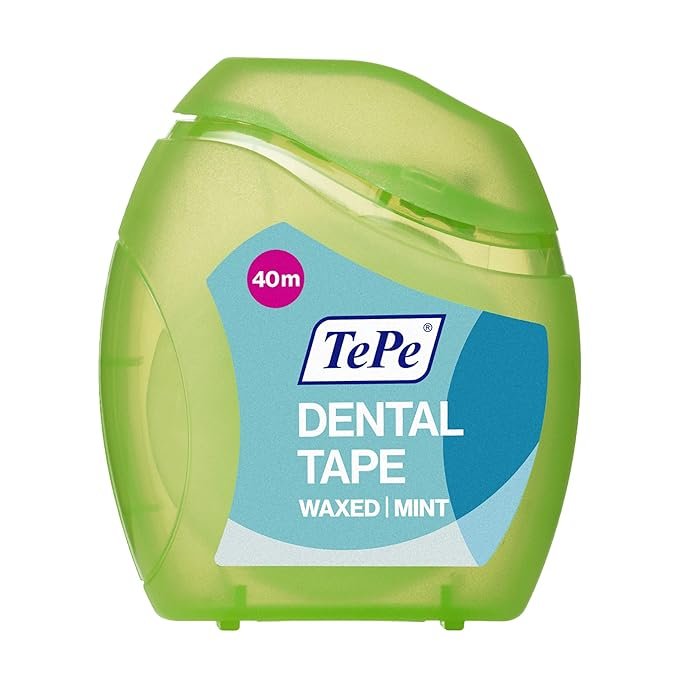
Waxed Floss: Pros and Cons
Waxed floss is a popular choice for many individuals due to its ease of use and smooth texture. One of the main advantages of waxed floss is its ability to easily glide between the teeth, making it particularly suitable for individuals with tight spaces or crowded teeth. The waxy coating allows the floss to slide smoothly, reducing the risk of fraying or getting stuck during the flossing process.
Additionally, the waxed coating on the floss can make it more comfortable and gentle on the gums. This is especially beneficial for individuals with sensitive gums who may experience discomfort or irritation with other types of floss. The smoothness of the waxed floss can help prevent damage to the gum tissue, making it a suitable choice for individuals with gum disease or those who are prone to gum bleeding.
However, it is important to note that waxed floss may not be the optimal choice for everyone. One possible disadvantage is that the wax coating can make the floss slightly thicker, which may make it more difficult to use for individuals with very tight spaces between their teeth. In such cases, using a thinner type of floss, such as monofilament floss, may be a better option.
Furthermore, some individuals may find that the waxed coating on the floss leaves a residue or a waxy feeling in their mouth. This sensation may not be appealing to everyone, and individuals who prefer a completely clean feeling after flossing may opt for a different type of floss without the wax coating.
| Pros | Cons |
|---|---|
| Slides easily between tight teeth | Can be slightly thicker than unwaxed floss |
| Less likely to shred or break | May contain artificial waxes or flavors |
| Comes in various flavors | Can be more expensive than unwaxed floss |
| Provides a smooth, comfortable experience | Some users may find the waxy residue unpleasant |
| Effective at removing plaque and debris | Not suitable for those with wax allergies |
In conclusion, waxed floss offers several advantages, such as easy gliding between teeth and gentle stimulation of the gums. However, it may not be suitable for individuals with very tight spaces and some individuals may find the waxy feeling unpleasant. Ultimately, the choice of floss should be based on individual preferences and guidelines provided by dental professionals.
Unwaxed Floss: Pros and Cons
Unwaxed floss is a commonly used type of dental floss that provides several advantages and disadvantages. One of the pros of using unwaxed floss is its ability to remove plaque and food particles effectively. With its thin and flexible texture, unwaxed floss can easily glide between teeth, reaching tight spaces and removing debris that might be missed by a toothbrush alone.
Another advantage of unwaxed floss is its affordability. Compared to other types of floss, unwaxed floss is generally more budget-friendly, making it a popular choice for individuals who are looking for a cost-effective option for maintaining good oral hygiene. However, one of the downsides of unwaxed floss is its lack of coating, which can make it more prone to shredding or fraying during use. This can be a disadvantage for individuals with tight contact points between their teeth or those with dental restorations such as dental crowns or orthodontic appliances. Additionally, some individuals may find the lack of coating on unwaxed floss less comfortable to use, as it may feel rough or squeaky against their teeth and gums.
Overall, while unwaxed floss offers effective plaque removal and affordability, its lack of coating and potential discomfort during use should be taken into consideration when choosing the right floss for your oral hygiene routine. It is advisable to consult with your dentist to determine if unwaxed floss is suitable for your specific dental needs and to learn about alternative options that may better cater to your oral health requirements.
| Pros | Cons |
|---|---|
| Removes plaque and food particles effectively | May fray or break more easily than waxed floss |
| Can be easier to maneuver between tight teeth | May feel rougher or less comfortable to use |
| Less likely to leave a waxy residue on teeth | May not glide as smoothly between teeth |
| Generally less expensive than waxed floss | May not be as widely available as waxed floss |
| Some people prefer the natural feel of unwaxed floss | Might not be suitable for people with sensitive gums or tight teeth |
Flavored Floss: Pros and Cons
Flavored floss offers a unique and enjoyable twist to the daily task of flossing. Many people find the taste of flavored floss to be more pleasant and refreshing than the plain, unflavored variety. It can make the experience of flossing more enjoyable, and therefore, encourage regular flossing habits.
One of the main advantages of flavored floss is that it can help mask any unpleasant odors or tastes that may arise during flossing. This is particularly beneficial for individuals with bad breath or heightened sensitivity to certain flavors or smells. By using flavored floss, these individuals can maintain good oral hygiene without any discomfort or distaste. Additionally, flavored floss may also be appealing to children, making it easier to get them excited about flossing and establish good oral care habits from an early age.
Expanding Floss: Pros and Cons
Expanding floss is a type of dental floss that is designed to expand upon contact with saliva or moisture. This unique characteristic helps to effectively remove plaque and food debris from hard-to-reach areas between the teeth. One of the main advantages of expanding floss is its ability to conform to the contours of the teeth, providing a thorough cleaning experience. Additionally, the expansion of the floss can assist in stimulating the gums, promoting blood circulation and maintaining optimal oral health.
However, it is important to note that expanding floss may not be suitable for everyone. Some individuals may find the expansion uncomfortable or even painful, especially if they have sensitive gums or teeth. Additionally, the expansion of the floss can make it more difficult to navigate between closely spaced teeth or tight gaps. In these cases, it may be necessary to consider alternative types of floss that are better suited to individual needs. It is always advisable to consult with a dental professional to determine the most appropriate flossing method for your specific oral health requirements.
| Pros | Cons |
|---|---|
| 1. Enhanced cleaning between teeth | 1. Costlier than regular floss |
| 2. More coverage for larger gaps | 2. Requires more storage space |
| 3. May be easier for people with | 3. Some users may find it less |
| dexterity issues to handle | convenient to use |
| 4. Variety of options available for | 4. Not all brands offer expanding |
| different needs | floss, limiting choices |
| 5. Can be more comfortable for some | 5. May not be suitable for very |
| users due to its texture | tight spaces between teeth |
Super Floss: Pros and Cons
Super floss is a specialized type of dental floss that is designed to meet the needs of individuals with dental appliances, such as braces or bridges. One of the key advantages of super floss is its ability to effectively clean between the teeth and around brackets or other dental hardware. The floss consists of three components: a stiffened end, a spongy middle section, and a regular floss section. This unique design makes it easier to insert the floss between the teeth and effectively remove plaque and food particles.
Aside from its utility for individuals with dental appliances, super floss can also be beneficial for those with larger gaps between their teeth or who have trouble maneuvering regular floss. The spongy middle section of the floss expands upon contact with saliva, making it easier to clean areas that may be harder to reach with traditional floss. Additionally, the stiffened end can be used as a floss threader, allowing for easier navigation through tight spaces.
While super floss offers these advantages, it is important to note that it may not be suitable for everyone. Individuals with tightly spaced teeth or sensitive gums may find it uncomfortable or difficult to use. Moreover, super floss tends to be thicker than regular floss, which may make it challenging to glide between teeth. It is crucial to consult with a dental professional to determine if super floss is the right choice for your specific dental needs.
Water Flossers: Pros and Cons
Water flossers, also known as oral irrigators, have gained popularity in recent years as an alternative to traditional flossing methods. These devices use a stream of water or a combination of water and air to remove plaque and food debris from between the teeth and along the gumline. One of the main advantages of water flossers is their ability to reach areas that are difficult to access with regular floss. This can be particularly beneficial for individuals with braces, bridges, or dental implants.
Furthermore, water flossers are often recommended for those with sensitive gums or dental work, as they provide a gentler cleaning experience compared to traditional floss. By adjusting the water pressure and selecting the appropriate tip, users can customize their flossing experience to suit their individual needs. Additionally, some water flossers come with specialized tips for targeting specific dental concerns, such as gum disease or orthodontic appliances.
On the other hand, it is important to consider a few potential drawbacks of water flossers. Firstly, these devices can be relatively expensive compared to traditional floss. Additionally, they require a power source and water supply, which may not be convenient for everyone, especially when traveling. Furthermore, water flossers may cause some splashing or mess during use, requiring users to be mindful of their surroundings.
In conclusion, water flossers offer a convenient and effective alternative to traditional flossing methods. While they may come with some cost and logistical considerations, their ability to reach difficult areas and provide a gentler cleaning experience make them a valuable tool for maintaining optimal oral health. However, it is important to consult with your dentist or dental hygienist to determine if a water flosser is suitable for your specific needs and oral health condition.
Interdental Brushes: Pros and Cons
Interdental brushes are a popular option for cleaning between the teeth and along the gumline. These small brushes are especially effective for individuals with larger gaps between their teeth or those who have dental work such as braces or bridges. One of the main advantages of interdental brushes is their ability to remove plaque and debris from hard-to-reach areas that traditional floss may miss. The bristles of the brush can reach into the crevices between the teeth, promoting better oral hygiene and reducing the risk of gum disease and tooth decay. Additionally, interdental brushes are easy to use and can be more comfortable for individuals who struggle with traditional floss or have dexterity issues.
However, there are some potential drawbacks to using interdental brushes. One concern is that if used too aggressively or with excessive force, these brushes can cause gum irritation and bleeding. It is important to choose the right size of brush for your teeth and to use a gentle, back-and-forth motion when cleaning between the teeth. Additionally, interdental brushes may not be suitable for everyone. Individuals with small gaps between their teeth may find it difficult to insert the brush properly, while those with sensitive gums may find the bristles too abrasive. As with any oral care tool, it is best to consult with a dental professional to determine if interdental brushes are the right option for your specific needs.
Floss Picks: Pros and Cons
Floss picks are a popular alternative to traditional dental floss, offering convenience and ease of use for many individuals. One of the main advantages of floss picks is their design, which incorporates a thin strand of floss stretched between two plastic handles. This design allows for better control and maneuverability, making it particularly helpful for people with limited dexterity or those who struggle with using regular floss.
Additionally, floss picks are great for reaching tight spaces between teeth or behind dental appliances, such as braces or bridges. The compact size and angled tip of floss picks enable them to access areas that may be challenging to reach with traditional floss. This can be especially beneficial for individuals with orthodontic appliances or dental work that require extra attention when cleaning.
On the downside, floss picks may not be as effective at removing plaque and debris as traditional floss. The single strand of floss on a floss pick can become worn or fray after using it for multiple teeth, potentially reducing its cleaning effectiveness. Moreover, the plastic handle of floss picks may not provide enough flexibility to efficiently contour to the natural curves of the teeth, limiting their ability to fully clean all areas.
It is important to note that while floss picks can be a useful tool in maintaining oral hygiene, they should not replace regular flossing. A comprehensive oral care routine should include a combination of flossing, brushing, and regular dental check-ups for optimal dental health.
Factors to Consider When Choosing Floss
When it comes to choosing the right floss, there are several factors to consider. Firstly, you need to think about the type of floss that would work best for you. There are different types of dental floss available, such as traditional nylon floss, monofilament floss, dental tape, waxed floss, unwaxed floss, flavored floss, expanding floss, super floss, and even alternatives like water flossers, interdental brushes, and floss picks. Each type has its own pros and cons, which you should take into account.
Another factor to consider is your individual dental needs. For example, if you have tight spaces between your teeth, you may opt for a thinner floss that can easily slide through. On the other hand, if you have larger gaps or braces, a thicker floss or one with special features like a stiff end may be more effective. Additionally, factors such as gum sensitivity, dexterity, and personal preference should be taken into consideration. Choosing the right floss that suits your specific needs and preferences can ultimately enhance your flossing experience and improve your oral health.
Tips for Proper Flossing Technique
When it comes to achieving optimal oral health, proper flossing technique is key. Here are some tips to ensure you are flossing effectively:
1. Use enough floss: Cut off a piece of floss that is approximately 18 inches long. This will provide enough length to clean between each tooth without reusing the same section.
2. Hold the floss correctly: Wrap the ends of the floss around your middle fingers, leaving a few inches of floss in between. Use your thumbs and index fingers to guide the floss between your teeth.
3. Be gentle: Avoid snapping the floss into your gums, as this can cause irritation and bleeding. Instead, use a gentle back-and-forth motion to remove plaque and debris. Make sure to get just below the gumline, where bacteria tend to accumulate.
4. Don’t forget the back teeth: Many people forget to floss the hard-to-reach areas at the back of the mouth. Take your time and floss each tooth, including the ones at the back, to ensure a thorough clean.
5. Rinse and repeat: After flossing, rinse your mouth with water to remove any loosened debris. Consider using a mouthwash to further freshen your breath and kill bacteria.
By following these tips, you can enhance your flossing technique and maintain a healthy smile. Remember, consistency and diligence are key to achieving optimal oral health.
The Role of Flossing in Maintaining Oral Health
Flossing is an essential component of maintaining optimal oral health. While brushing is effective at removing plaque from the surfaces of the teeth, it is unable to reach the tight spaces between the teeth and along the gumline. This is where flossing comes into play. By using dental floss, individuals can effectively remove plaque and food particles from these hard-to-reach areas, preventing the formation of cavities, gum disease, and other oral health issues.
According to the American Dental Association, flossing on a daily basis can significantly reduce the risk of gum disease and tooth decay. When plaque is allowed to accumulate between the teeth, it can harden into tartar, which cannot be removed through brushing or flossing alone. Tartar buildup can lead to gum inflammation and eventually cause periodontal disease if left untreated. Regular flossing helps remove plaque and prevent tartar formation, keeping the gums healthy and reducing the likelihood of developing gum disease. Additionally, flossing helps maintain fresh breath by eliminating trapped food particles that can contribute to bad breath.
FAQS
How often should I floss my teeth?
It is recommended to floss your teeth at least once a day to maintain good oral health.
Can I use any type of dental floss?
No, it is important to choose the right type of dental floss that suits your needs and preferences. Consider factors such as the spacing between your teeth and any specific oral health concerns.
What are the benefits of using flavored floss?
Flavored floss can make the flossing experience more enjoyable and encourage regular flossing. It can also help freshen breath.
Is water flossing as effective as traditional flossing?
Water flossers can be an effective alternative for those who struggle with traditional flossing. They use a jet of water to remove food particles and plaque between teeth. However, it is important to note that they should not replace traditional flossing entirely.
Are floss picks as effective as traditional floss?
Floss picks can be a convenient option, especially for those with dexterity issues or when flossing on the go. However, they may not provide the same level of control and reach as traditional floss.
Can flossing prevent cavities?
Yes, regular flossing helps remove plaque from between teeth and along the gumline, reducing the risk of tooth decay and cavities.
Can flossing prevent gum disease?
Yes, flossing plays a crucial role in preventing gum disease. It helps remove plaque and bacteria that can lead to gum inflammation and infections.
Should I floss before or after brushing my teeth?
It is generally recommended to floss before brushing your teeth. This allows the fluoride from toothpaste to reach between your teeth more effectively.
Can flossing help with bad breath?
Yes, flossing helps remove food particles and plaque from between teeth, which can contribute to bad breath. Regular flossing, along with proper oral hygiene, can help freshen breath.
Is it normal for my gums to bleed when I floss?
It is not normal for your gums to bleed when you floss. However, if you have not flossed regularly or have gum disease, you may experience bleeding initially. With consistent flossing, the bleeding should reduce. If it persists, consult your dentist.
Can flossing help with teeth sensitivity?
Yes, flossing can help with teeth sensitivity by removing plaque and food particles that may contribute to sensitivity. It is important to be gentle while flossing to avoid further irritation.
Are interdental brushes better than traditional floss?
Interdental brushes can be effective in cleaning larger gaps between teeth or around dental work. However, traditional floss is generally more versatile and can reach areas that brushes may not.
Can flossing help prevent tartar buildup?
Regular flossing can help prevent tartar buildup by removing plaque, which eventually hardens into tartar. However, professional dental cleanings are still necessary to completely remove tartar.






